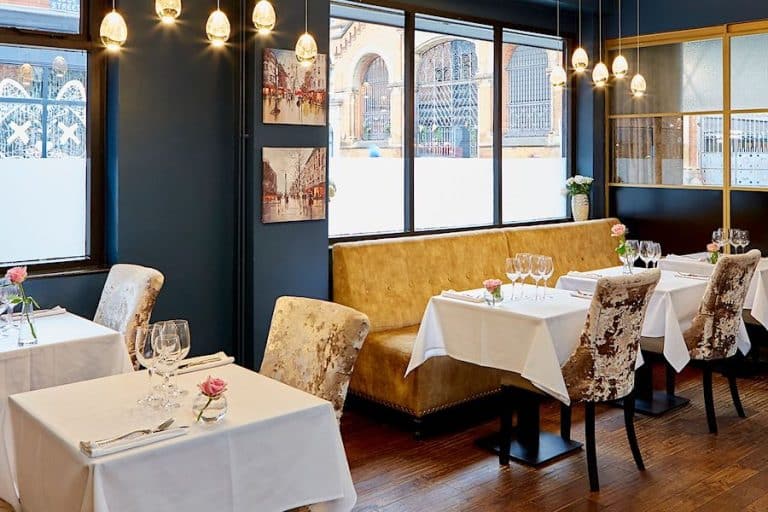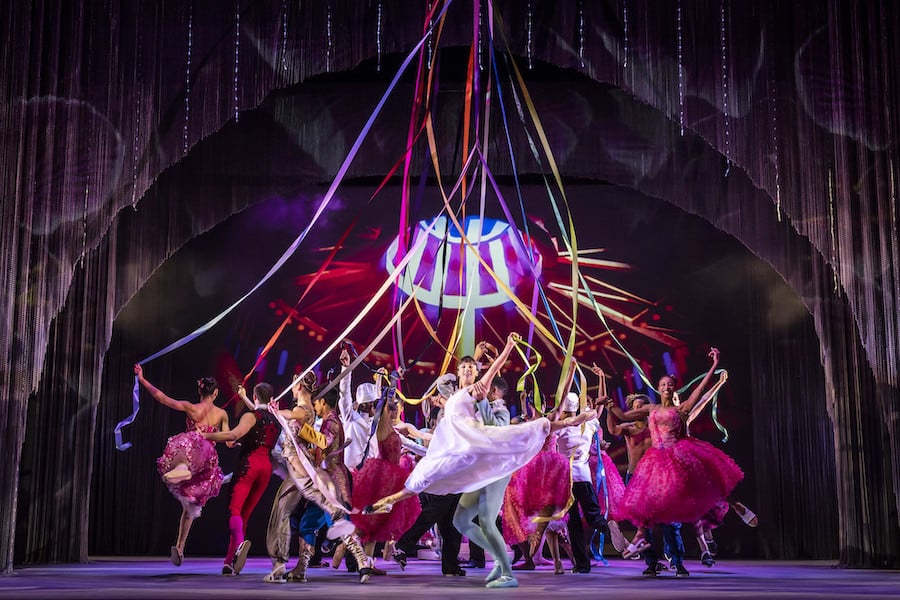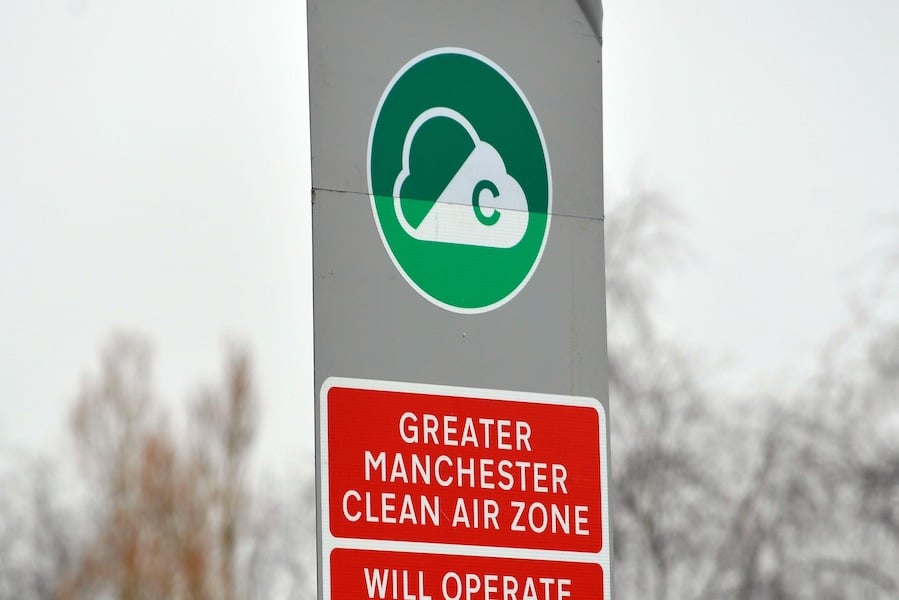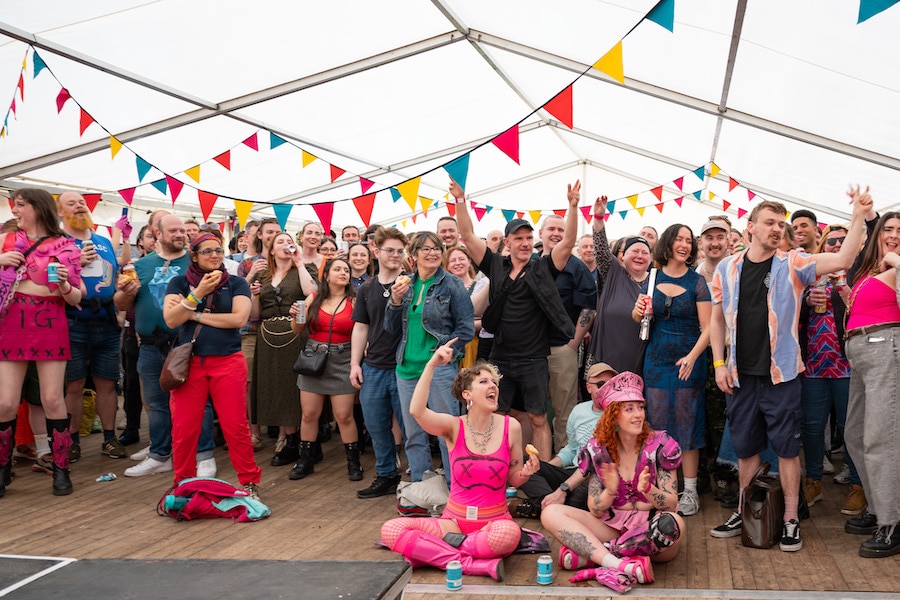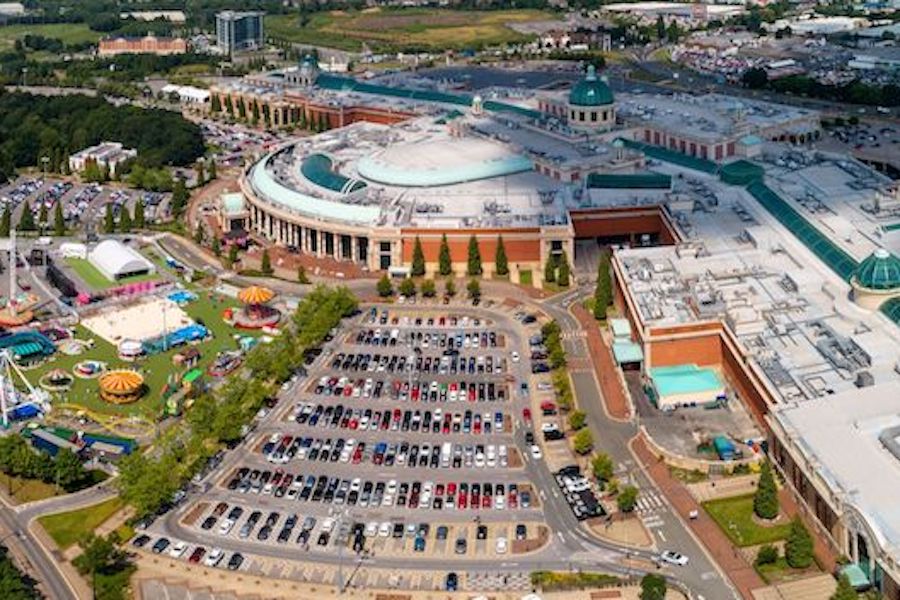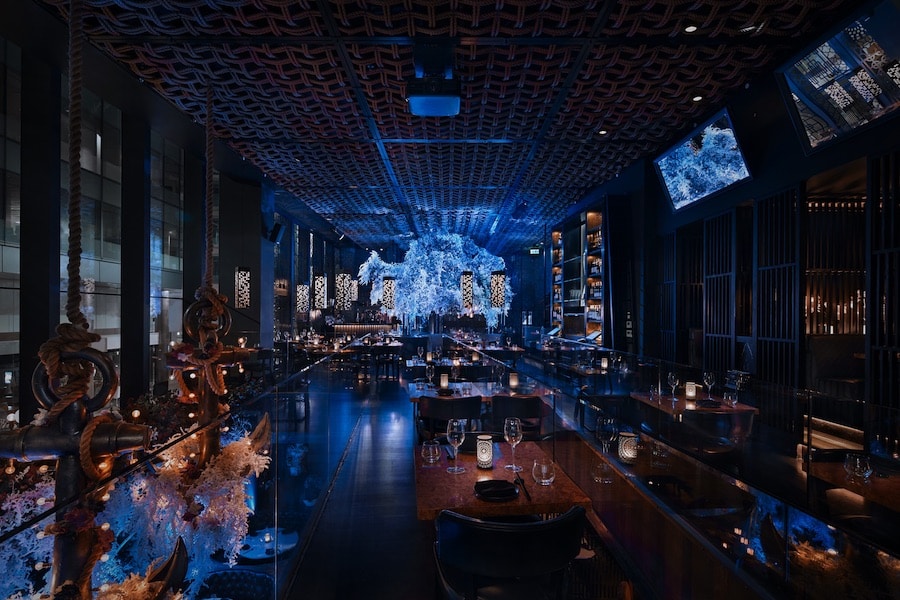The incredible author exploring Manchester’s vibrant LGBTQ+ scene
- Written by Glenn Meads
- Last updated 1 year ago
- City of Manchester, Community, People
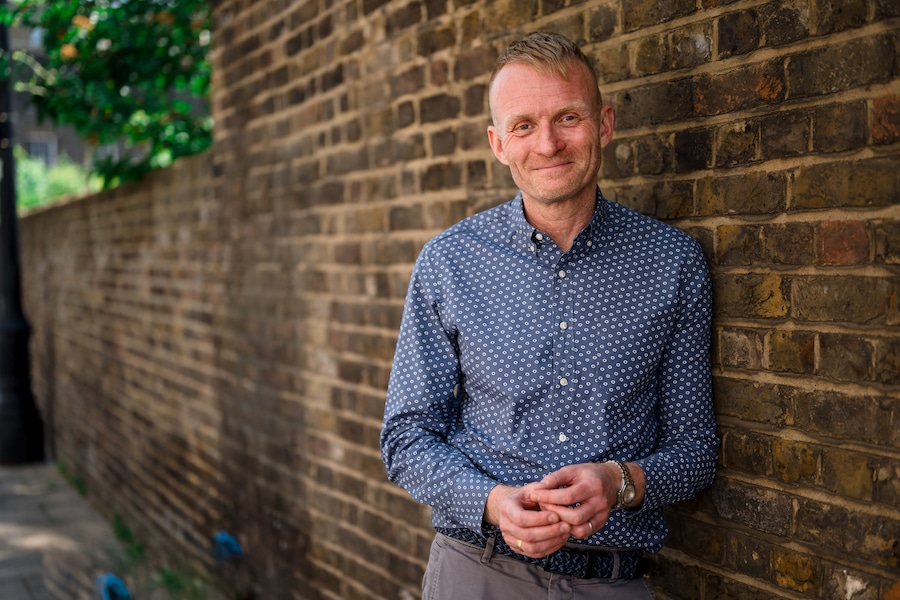
Bury-born author, and leading commentator on LGBT issues Matt Cain grew up in Bolton and then moved to London, as his work as a journalist took him there.
Header photo credit: Claire Gardner Photography
He has remained an ambassador for Manchester Pride and the Albert Kennedy Trust and his new novel One Love is set in Manchester.
It feels as if he has come full circle. His first novel The Madonna of Bolton was rejected by publishers at the time for being “too gay.”
It was then published via a huge crowdfunder which was incredibly successful and paved the way for Matt to explore various issues, including sexuality and identity in books such as Becoming Ted and The Secret Life of Albert Entwistle.
A loyal Madonna fan spanning back to his childhood and a lover of Manchester, this new novel sees Matt coming home both physically and metaphorically, as he has written his first gay sex scene.
He has come a long way and he has risen like a phoenix, since those early rejections.
He is now married and he hopes to attract newcomers to his Canal Street set novel, as well as his readers who have been there since the very beginning.
We caught up with him to find out more.
How does One Love differ from your other books?
On the level of craft, it’s more ambitious and epic than the others. It is a dual time frame past and present and the past timeline is mixed up as well. It is more ambitious and it is more mature. It’s got more edge than the others. I had a real struggle to get published. And because I had been told time and time again “This won’t appeal to an audience” – I ended up thinking I had to soften the stories as you believe what you are being told. This book explores social class in a way I have never done before. That’s a whole new theme I have opened up and It’s more political actually.
Even though this a new book, does it feel like the one you have always been wanting to write?
Every time I spoke to publishers, they would say let’s go with Albert Entwistle first or let’s go with Becoming Ted first, as they are less combative. But because I was able to leave the book and come back to it, I think it got better. I am lucky because I have loads of new ideas. When I wrote the previous books I was presenting a different version of myself. They are all authentic but if I let the queerest side of myself, loose with the Madonna of Bolton – the time was different and it may not have been successful. Young people have taken things further. I was in the generation that bought in tuition fees, and I can be proud of some things I have done but some of the things, young people do certain things better. They may have benefitted from my story of getting my book crowdfunded and writing queer characters. But I am now benefitting from them pushing the envelope. So much so that if anyone from the publishing industry says that I shouldn’t be including a gay sex scene in one of my books, I can say “No, that’s bullshit.” I was always told you can talk about the emotion in a gay sex scene but not the anatomical details. Then Candice Carty Williams wrote Queenie and there are lot of sex scenes in there and I love that book. And there is an anal sex scene, I read that and then said to my publisher, I am having a gay sex scene as I realised people will read it, and they are not put off. I am not going to apologise for it.
The book spans 20 years. Was that deliberate to say something about representation and identity?
That twenty-year period is the twenty years that everything changed for gay men. Jan/Feb 2002 was Pop Idol with Will Young winning. Whilst we didn’t know he was gay at the time, by the time the single “Evergreen” came out we did know and that song became the biggest-selling single of that decade. That kind of thing changed a lot. There was also Equality legislation from the Labour government and it took them a few years to get going. In that period a great deal changed for gay men which is brilliant but if you grow up thinking you are a social pariah, and the worst thing ever. To then go to being celebrated is quite an adjustment. That’s what I am talking about in this book.
I remember it well and some people may have not felt ready to step out and celebrate who they were.
The backbone of this book is all four days of Manchester Pride – the Friday, Saturday, Sunday in Monday, including the parade. Every time I go on the march/parade, and I see families stood cheering, I remember hearing people shouting obscenities and it means that then you ended up holding back. So it is quite a big adjustment.
How does social class feature in the novel?
My characters are a few years younger than me. They were 18 when they start studying at Manchester University and twenty years later they come back for Pride weekend. They’re both now 38 at this point.
A lot is going on. I talk about social class. I grew up in a working class family and my mum and dad are both from council estates and I went to a Comprehensive school.
When I got into Cambridge University I thought: “Class isn’t a thing anymore.”
And I thought that if anyone mentioned my class, I should laugh it off, as I did not want to be accused of having a chip on my shoulder which is the ultimate way to silence working-class voices.
So I did what I could to fit in and not let it get to me. Then later on in life, I realised how difficult my journey was compared with someone who went to private school or had an upper-middle-class background.
So exploring that theme has been a real mark of maturity for me.
How many of your characters are part of you? Do you write what you know?
I think writing about what you know is important. I can change the surface detail of someone’s life and what they do and the timeline but I have to feel all of the emotions they are exploring or it won’t be authentic. The two protagonists are Danny and Guy.
Guy is from an upper-middle-class family, he went to a private boarding school and he is from Buckinghamshire. He is gorgeous looking, masculine, straight acting, does sports and he is this god.
He is based on a lot of people I know; an amalgamation. Danny is much more me; Northern, working class and he is not hot. He is camp and gay presenting.
I quite like writing about transformation, self-discovery and self-actualisation. What happens is the characters look outside of themselves to make them better. They have been made to feel they are not good enough. In the Madonna of Bolton, the protagonist looks at Madonna. She is his spirit guide, she can make him feel better. In Becoming Ted, the lead looks at drag. In this one, Danny looks at Guy and he is everything that he is not. He thinks if only he will love me, everything will be alright. He thinks he can be rescued. He realises after 20 years that he had the capacity for happiness inside of him. Nobody else can make you good enough.
Is that you now looking back?
It is great to get further down the line and look back. You can see how everything is connected. I had to accept that I was good enough and deserving of love before I found love. I think that is why it took me until my 40s to find it. It is also about different relationships. When we grew up as gay men, there were no role models of gay relationships.
All we saw was negativity and negative representation. What we did see was hypersexualised. It was how gay people had sex, not how we loved.
And because of that, we looked to straight culture for our models. It took me a while to realise that there is no template to follow, but that means you have to make it up yourself. Being queer now is a real privilege as there is an expectation you are going to live a life that is a little more different and alternative.
When I think about my siblings, there was an expectation they would do a safe job, get married and have children. And that’s it. And that’s what they have done. I have done all kinds of different things that I would not have done if I was not queer. Once you have told your mum and dad you are gay and you have sex with men, it’s fair game and they can accept anything else.
This book is set in Manchester and the others have had major scenes in them. Bury Sixth Form College was in Whitefield, so when we started going out, we went to Manchester.
The University awakening that many experiences happened to me in Sixth Form. It opened up Manchester for me in the early 1990s.
So what are your memories of Manchester at that time?
It not only felt like the coolest city on the planet, it was the coolest city on the planet.
Everybody wanted to be there; all the edgy fashion brands, the music, everything – it was all about Manchester. When you went in, it was so exciting. There was a thriving arts and culture scene and that had a major impact on me. It introduced me to the idea that there were industries for all of these cultural activities and that I could make a living one day from that. The fact there was a gay village and an acceptance of queer people and that this was built into the social conscience and the fabric of the city.
The anti-Section 28 movement, the Suffragette movement, and parliamentary reform when you think about the Peterloo Massacre.
It all started here. Acceptance of minorities and sticking up for the persecuted was part of its identity. There was a gay village when gay culture was opening up to the mainstream. It was completely amazing to me.
I always say it saved my life – Manchester. It made me love and accept myself as a gay man, it switched me on to my creativity and how that could be a big part of my life social conscience and politics. And I like the idea of these two protagonists having their Manchester awakening and then 20 years later coming back for Manchester Pride.
And that does feel like my life, as I had my awakening here and I am coming back to Manchester with this book and it feels like the right time and everything is coming together.
When you come back to Manchester, how different does it feel to you and does it feel like coming home?
The spirit and the soul are the same. The soul comes from the people. There is warmth and the social conscience that I talked about before. When I used to come it was still rough around the edges. It feels very glamorous and affluent. But the soul remains. Some areas are not as polished.
I remember going to watch Love, Valour, Compassion by Terence McNally at the Library Theatre. So not only did they have bars for people like me, there were plays. It is even more exciting now, as there is so much going on here. The big musicals like & Juliet and Back to the Future start here and they get it right. And there is edgier work here. I love what they do at Hope Mill.
There is a real entrepreneurial spirit here, it is very ‘can-do.’ The fact that it rains a lot is part of that. Our city has to hold up in pissing rain a lot of the time. We have to come up with other things to simulate and keep us occupied and that makes it. It is a lot more interesting than somewhere with sunny weather and nothing else.
How did it feel going to a venue to get married within the 20-year time span of the book, seeing and feeling the warmth as you entered the building?
I wasn’t prepared for it. It was emotionally overwhelming. I knew my husband telling me he loved in public would be a big thing. But I was not prepared for the rest. It was an amazing day, but it was also very overwhelming. People come to gay weddings knowing we were persecuted so they invest more emotion. When you are older and you have had to fight to just get love, it is quite a lot.
How is this linked to the book?
I wanted to write it because even though so much is infinitely better than the past, the growing up process cannot be wiped out as it shapes you. It cannot be erased.
Going back to the beginning and The Madonna of Bolton, what did you think of her Celebration tour?
It was great as the previous 10 years have been difficult to be a Madonna fan. But this was a full circle moment. She took me back to being 9 years of age when I first discovered her. It was quite emotional as she sang Open Your Heart and it does do something to you. It takes you back to what you needed and got from her, for me aged 12 at the Who’s That Girl tour in Leeds in 1987.
I loved the opening with Nothing Really Matters. And If she comes back and does another leg, I would love to go back. She had been standing up for gay men when no one else did, so I will continue standing up for her and supporting her.
You can get a signed copy of Matt Cain’s new book One Love here. And if you want to see Matt Cain talking about the book and his writing and life, he is in Manchester on the following dates:
Wed 31st January – Waterstones Deansgate at 6.30pm
Fri 2nd February – Art Museum and Sculpture Centre – Bury at 6pm
3rd February – Bolton Central Library at 2pm
6th February – QueerLit in partnership with Manchester Pride, Ancoats at 7.30pm
- This article was last updated 1 year ago.
- It was first published on 16 January 2024 and is subject to be updated from time to time. Please refresh or return to see the latest version.
Did we miss something? Let us know: [email protected]
Want to be the first to receive all the latest news stories, what’s on and events from the heart of Manchester? Sign up here.
Manchester is a successful city, but many people suffer. I Love Manchester helps raise awareness and funds to help improve the lives and prospects of people across Greater Manchester – and we can’t do it without your help. So please support us with what you can so we can continue to spread the love. Thank you in advance!
An email you’ll love. Subscribe to our newsletter to get the latest news stories delivered direct to your inbox.
Got a story worth sharing?
What’s the story? We are all ears when it comes to positive news and inspiring stories. You can send story ideas to [email protected]
While we can’t guarantee to publish everything, we will always consider any enquiry or idea that promotes:
- Independent new openings
- Human interest
- Not-for-profit organisations
- Community Interest Companies (CiCs) and projects
- Charities and charitable initiatives
- Affordability and offers saving people over 20%
For anything else, don’t hesitate to get in touch with us about advertorials (from £350+VAT) and advertising opportunities: [email protected]
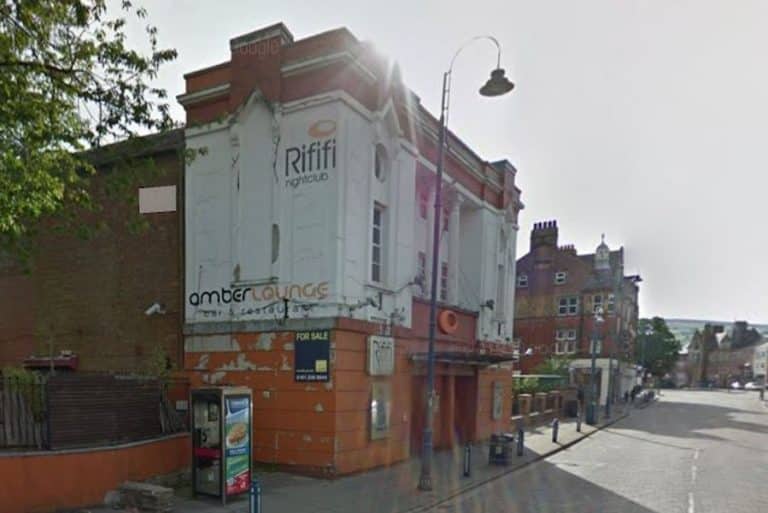
Old nightclub at the heart of ‘Staly Vegas’ could be transformed into new food hall
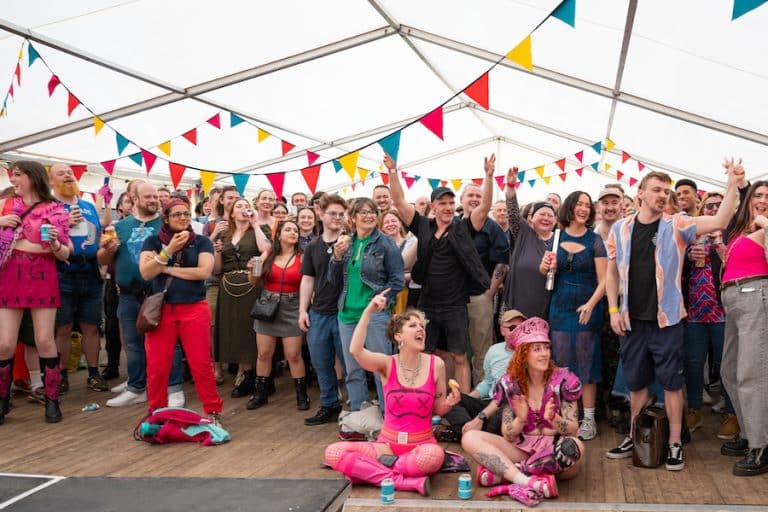
How Sounds from the Other City became the UK’s most unforgettable independent festival
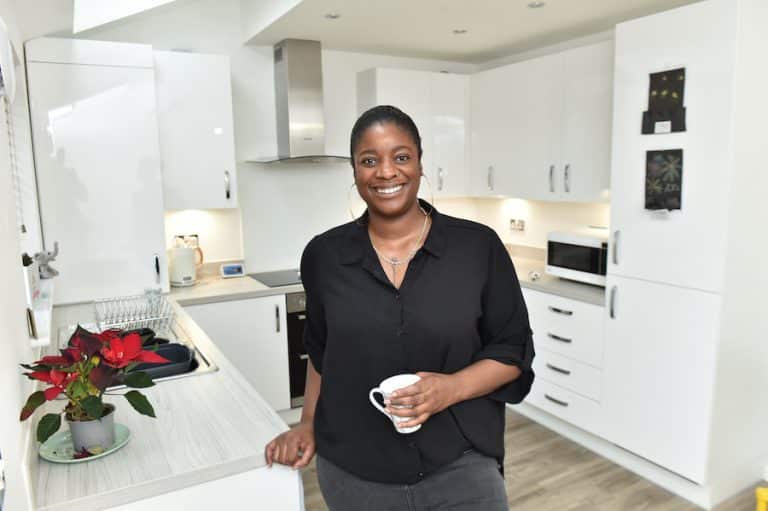
The shared ownership scheme that gave Fiona the family home she always wanted

How shared ownership can get you on the property ladder in 2025
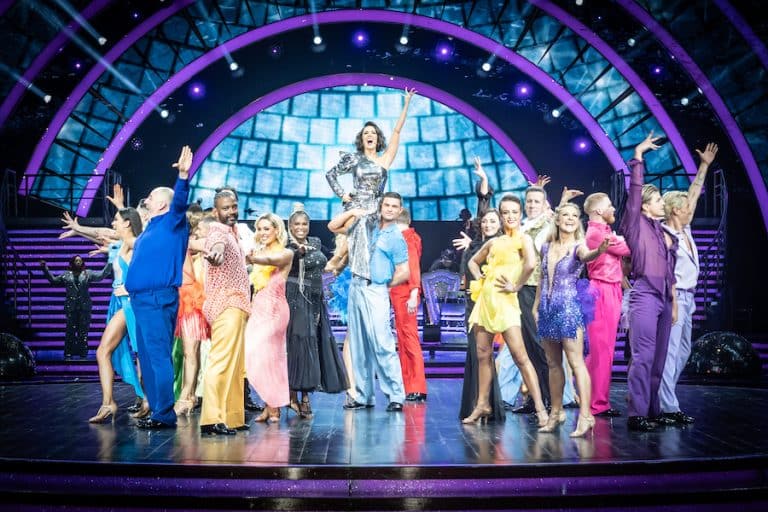
Review: Strictly Come Dancing at the AO Arena is ‘joyous, slick and strictly brilliant’
